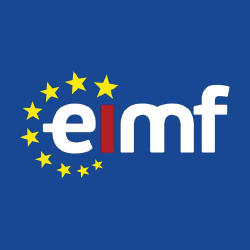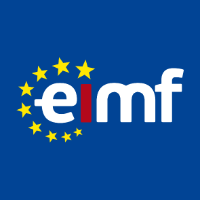Overview of the Directive on Administrative Cooperation (DAC8): Marking the end to Crypto-Asset Non-Taxation
- Χρηματοοικ. Ασφαλιστικά Τραπεζικά - Λογιστικά/ Έλεγχος/ Φορολογικά - Καινοτομία/ Start Ups - Πληροφορική - Επαγγελματίες IT

ΠΕΡΙΓΡΑΦΗ
The 8th iteration of the Directive on Administrative Cooperation (DAC8) seeks to enhance the capacity of tax authorities in EU Member States to detect and counter tax fraud, tax evasion and tax avoidance derived from both domestic and cross-border transactions (transfer or exchange) involving crypto-assets. It does so through a process of reporting and automatic exchange of information specifically pertaining to revenues derived from transactions falling within the defined scope, as well as information on advance cross-border tax rulings for individuals residing in the EU.
DAC8 encompasses a broader range of cryptoassets, including those addressed by MiCA. In fact, DAC8 complements MiCA and Travel of Funds Regulations creating a legislative framework designed to instil transparency and resilience in the crypto-asset ecosystem.
The Directive is to apply from 1 January 2026. However, two exceptions are provided therein; the provisions on the identification service apply from January 2025, while the provisions on the verification on the tax identification number will only apply from January 2027.
ΣΚΟΠΟΣ ΣΕΜΙΝΑΡΙΟΥ
By the end of the programme, participants will:
- Have an overview of the Directives on Administrative Cooperation so far and understand why DAC8 was needed
- Have an overview of the DAC8 and be able to review and analyse it
- Have a thorough understanding of DAC8’s main provisions, such as the information to be automatically exchanged, the due diligence procedures
- Understand why crypto-assets are of particular concern for national tax administrations and the implications of anonymity in implementing crypto-assets policies
- Understand the challenges present in crypto tax design schemes and have an overview of the different tax treatment of crypto-asset transactions in different jurisdictions
- Understand the links between DAC8, MiCA and Travel of Funds Regulations.
ΣΕ ΠΟΙΟΥΣ ΑΠΕΥΘΥΝΕΤΑΙ
- Compliance officers
- EU Lawyers
- Third-country lawyers
- Internal lawyers (working in any legal department of an organization or government)
- Blockchain technologists and developers
- Professionals in the banking sector (Including neo and challenger banks)
- Financial Advisors
- Executives and senior managers
- Software Developers
- Legal Services Professionals
- Legal Projects Managers
- Legal Analysts
- Government Agencies
- Corporate Administrators
- Strategy Managers
- Technology Strategy Leaders
- Digital Transformation Heads, Officers and Team Members
- Innovation Leaders and members of Innovations labs
ΠΕΡΙΣΣΟΤΕΡΕΣ ΠΛΗΡΟΦΟΡΙΕΣ
Training Outline
Introduction to Directives on Administrative Cooperation (DAC) and the Need for DAC8
- The evolution of Directives on Administrative Cooperation;
Understanding DAC8
1. Why Crypto-Assets are of Concern for National Tax Administrations
- Divergencies in the treatment of crypto for tax purposes; the role of DAC8
- Implications of anonymity in the context of crypto-assets taxation;
2. Review and Analysis of DAC8 main provisions
- Overview of the key provisions and objectives
- Exploring reporting thresholds and deadlines
- Types of information subject to automatic exchange
- Due Diligence
- Penalties for non-compliance
How can CASPs and investors prepare for DAC8 compliance?
- CASPs: Understanding requirements; preparing the organization.
- Investors: Understanding the requirements and the challenges.
Contextualizing DAC8 within the broader regulatory landscape – DAC8, MiCA, and Travel of Funds Regulations
- Understanding interconnectedness between MiCA Regulation, Travel of Funds Regulation, and DAC8
- Exploring the synergies for comprehensive regulatory coverage; how regulations complement each other.
Training Style
The programme is designed to deliver high-level knowledge and insights into the DAC8 and crypto taxation issues. It will strive to enhance participants’ skills and knowledge via lectures supported by power-point presentations and practical examples. The training style is both training-focused, involving a combination of presentation and real-live examples, but also learner-focused, where participants are encouraged to interact, share their different perspectives and engage in an exchange of views and personal professional experiences.
CPD Recognition
For the CySEC requirements, CPD units attained from this course should not exceed the 50% of the total CPD Units of each individual.
Πληροφορίες Εκπαιδευτή

Marie Markosian - Hellenic Capital Market Commission (HCMC) Senior Officer
Αναλυτικό Κόστος Σεμιναρίου
- € 150.00
- € 0.00
- € 28.50
- € 150.00
- € 178.50
ΠΡΟΓΡΑΜΜΑ ΣΕΜΙΝΑΡΙΟΥ
Τετάρτη - 26 Ιουν 2024
Ώρα
09:00 - 12:15
ΕΚΠΑΙΔΕΥΤΗΣ:
Marie MarkosianΤοποθεσία:
OnLine Virtual Classroom
Εκδήλωση Ενδιαφέροντος : Overview of the Directive on Administrative Cooperation (DAC8): Marking the end to Crypto-Asset Non-Taxation
Σεμινάρια στην ίδια κατηγορία από τον ίδιο διοργανωτή


AML and Red Flags...
When it comes to AML, there are a lot of different components to consider making it vital for professionals to have an understanding beyond how the rules impact...
30/04/2025 15:00
2.00 ώρες (1 ημέρα)
Αγγλικά
Live Online


The Current EU Regulatory Framework for the Financial Services Sector...
This programme provides an overview of important current regulations that are key for the financial services sector. It delves extensively into the most signif...
06/05/2025 09:00
15.00 ώρες (3 μέρες)
Αγγλικά
Επιχορηγημένο-ΑνΑΔ
Live Online


Unfair Commercial Practices in Financial Services...
Directive 2005/29/EC of the European Parliament and of the Council on unfair business-to-consumer commercial practices in the internal market (‘the UCPD’) const...
07/05/2025 09:00
6.00 ώρες (2 μέρες)
Αγγλικά
Επιχορηγημένο-ΑνΑΔ
Live Online


Unveiling Market Abuse Fundamentals & Trade Surveillance...
Market Abuse is a regulatory offense that encompasses various illicit activities aimed at manipulating financial markets for personal gain, as well as undermini...
13/05/2025 09:00
5.00 ώρες (1 ημέρα)
Αγγλικά
Live Online


Mastering Risk: Foundational Strategies for Investment Firms...
This programme is designed to equip professionals in investment firms, particularly those in key risk management roles, with the knowledge and skills necessary ...
13/05/2025 09:00
7.00 ώρες (1 ημέρα)
Αγγλικά
Επιχορηγημένο-ΑνΑΔ
Live Online


Card Fraud Management & Insider Fraud...
The course is designed to equip professionals with the knowledge and skills to effectively manage card fraud. It covers the latest trends, techniques, and techn...
14/05/2025 09:00
6.00 ώρες (2 μέρες)
Αγγλικά
Live Online


Digital assets on Blockchains: From AMLD5 to the AML Package...
In the rapidly evolving digital asset market, understanding the legal and regulatory frameworks is crucial for compliance and strategic advantage. The “Digital ...
15/05/2025 09:00
14.00 ώρες (3 μέρες)
Αγγλικά
Επιχορηγημένο-ΑνΑΔ
Live Online


AGRC Certificate in Sanctions Compliance...
Internal Sanctions have become the new norm in the financial services, as they have now been established as the chosen foreign policy tool instead of military a...
15/05/2025 10:00
10.00 ώρες (2 μέρες)
Αγγλικά
Επιχορηγημένο-ΑνΑΔ
Live Online


Leveraging AI in AML: Concepts, Applications, and Regulatory Complianc...
This course focuses on the application of Artificial Intelligence (AI) in Anti-Money Laundering (AML) programs. Participants will learn how AI technologies can ...
16/05/2025 09:00
6.00 ώρες (1 ημέρα)
Αγγλικά
Επιχορηγημένο-ΑνΑΔ
Live Online


Technology & Financial Crime...
Technology is one of the key pillars in any operational risk framework. In the current environment of advanced analytics solutions, increasing regulatory requir...
21/05/2025 10:00
7.00 ώρες (2 μέρες)
Αγγλικά
Live Online


Fraud Reporting under PSD2 – An Overview of the EBA Guidelines...
In accordance with Article 96(6) of PSD2, Payment Service Providers (PSPs) must provide statistical data on fraud relating to different means of payment to thei...
22/05/2025 09:00
6.00 ώρες (1 ημέρα)
Αγγλικά
Επιχορηγημένο-ΑνΑΔ
Live Online


Transaction Monitoring Regulatory Framework for Electronic Money and P...
This comprehensive course is designed to provide participants with a practical understanding of the regulatory and technical aspects involved in ensuring compli...
27/05/2025 09:00
7.00 ώρες (1 ημέρα)
Αγγλικά
Επιχορηγημένο-ΑνΑΔ
Live Online


Liquidity Stress Testing: Navigating the Regulatory Framework...
This course provides a comprehensive understanding of the regulatory framework for Liquidity Stress Testing (LST). It combines theoretical insights with practic...
28/05/2025 10:00
5.00 ώρες (2 μέρες)
Αγγλικά
Live Online


Effective AML Risk Management: Best Practices for Financial Institutio...
This training provides a comprehensive overview of Anti-Money Laundering (AML) risk management, focusing on identifying, assessing, and mitigating money launder...
28/05/2025 15:00
5.00 ώρες (1 ημέρα)
Αγγλικά
Live Online


European Green Bonds and ESG Ratings...
This seminar provides a comprehensive understanding of European Green Bonds and ESG Ratings, focusing on ESMA’s role in establishing technical standards and imp...
29/05/2025 09:30
6.00 ώρες (2 μέρες)
Αγγλικά
Live Online


Operational Risk Management in the Financial Institutions...
This course explores the intricacies of operational risk management within financial institutions, focusing on the identification, assessment, monitoring, and m...
30/05/2025 09:00
7.00 ώρες (1 ημέρα)
Αγγλικά
Επιχορηγημένο-ΑνΑΔ
Live Online


Fund Administration, Accounting, Reporting and Depositary Functions...
Course Overview Mutual Funds are a very widely used financial tool. Investors, professionals and individuals make use of them in order to benefit from the p...
04/06/2025 15:45
5.00 ώρες (2 μέρες)
Αγγλικά
Live Online


Cybercrime and Fraud Prevention...
Cybercrime refers to activities aimed at illegal or unauthorised system access, use, or abuse of data or computer systems. These activities include data theft, ...
11/06/2025 09:00
6.00 ώρες (2 μέρες)
Αγγλικά
Επιχορηγημένο-ΑνΑΔ
Live Online


CISI/ICAEW – Sources of Finance, Capital Investments & Valuations...
This comprehensive course offers an in-depth exploration of financial reporting, statement analysis, equity and debt capital markets, and alternative sources of...
12/06/2025 09:00
24.00 ώρες (6 μέρες)
Αγγλικά
Επιχορηγημένο-ΑνΑΔ
Live Online


The Latest Developments in Anti-Money Laundering and Counter Terrorist...
Criminals employ various methods to launder money, including layering, bulk cash smuggling, and the use of shell companies. Terrorist financing, a subset of mon...
12/06/2025 09:00
7.00 ώρες (2 μέρες)
Αγγλικά
Επιχορηγημένο-ΑνΑΔ
Live Online


Regulatory Compliance and Risk Appetite Frameworks for Financial Marke...
This course explores the intricacies of operational risk management within financial institutions, focusing on the identification, assessment, monitoring, and m...
13/06/2025 09:00
6.00 ώρες (1 ημέρα)
Αγγλικά
Live Online


Leadership Skills for Compliance Professionals...
Participants in this course embark on a transformative journey, delving into the multifaceted dimensions of compliance leadership. From understanding the intric...
17/06/2025 09:00
20.00 ώρες (4 μέρες)
Αγγλικά
Επιχορηγημένο-ΑνΑΔ
Live Online


NAV Oversight and Independent Review...
Accurate and reliable Net Asset Value (NAV) calculations are fundamental to maintaining investor confidence and ensuring the integrity of investment funds. This...
17/06/2025 09:00
7.00 ώρες (2 μέρες)
Αγγλικά
Live Online


Real Estate Transactions: Legal Aspects and Practical Insights in Cypr...
This programme offers a comprehensive exploration of legal aspects in real estate transactions in Cyprus. Participants will gain a thorough understanding of...
19/06/2025 09:00
3.00 ώρες (1 ημέρα)
Αγγλικά
Live Online


Εκούσιες Εκκαθαρίσεις – Θεωρία και Πρακτική...
Στόχος του προγράμματος είναι να δώσει στους συμμετέχοντες μια ολοκληρωμένη εικόνα αναφορικά με τη διαδικασία της εκούσιας εκκαθάρισης τόσο από μέλη όσο και από...
19/06/2025 09:00
7.00 ώρες (1 ημέρα)
Ελληνικά
Επιχορηγημένο-ΑνΑΔ
EIMF (Λευκωσία)


Due Diligence & Onboarding for EMIs...
Customer due diligence (“CDD”) is essential for regulatory compliance, risk management, detection of suspicious activities and maintaining the integrity and tru...
20/06/2025 09:00
6.00 ώρες (2 μέρες)
Αγγλικά
Επιχορηγημένο-ΑνΑΔ
Live Online


Factoring Financing...
Factoring is a type of finance in which a business would sell its accounts receivable (invoices) to a third party to meet its short-term liquidity needs. Under ...
25/06/2025 09:00
8.00 ώρες (2 μέρες)
Αγγλικά
Live Online


Mastering Transaction Monitoring: Best Practices for Financial Complia...
One of the basic, whist at the same time, most important controls needed to manage Money Laundering and Terrorism Finance risk, is Transaction Monitoring. Robus...
25/06/2025 10:00
5.00 ώρες (2 μέρες)
Αγγλικά
Live Online


Requirements for PSPs on the management and mitigations of ICT risks b...
Due to the continuous technological changes, the complexity of ICT and security risks within financial institutions is increasing. Subsequently, the frequency o...
27/06/2025 09:00
6.00 ώρες (1 ημέρα)
Αγγλικά
Live Online


Securing Digital Operations and Mitigating Cyber Threats in Regulated ...
The European Banking Authority (EBA) provides guidelines on information and communication technology (ICT) in the banking and financial services sector. The cou...
03/07/2025 14:00
3.00 ώρες (1 ημέρα)
Αγγλικά
Live Online


Comprehensive Internal Auditing for CIFs: From Planning to Communicati...
This programme will explore Internal Audit Practices and Professional Standards providing participants with essential knowledge and skills to excel in internal ...
17/07/2025 09:00
6.00 ώρες (2 μέρες)
Αγγλικά
Live Online


Anti-Bribery and Corruption...
Anti-bribery and anti-corruption legislation globally has existed for some time, though enforcement is becoming more aggressive. There is heightened regulatory ...
31/01/2026 08:57
Αγγλικά
eLearning


AGRC Certificate in Risk Management...
The AGRC Certificate in Risk Management will explore the core principles of risk and risk management in the context of the financial services sector. This ...
31/01/2026 08:57
Αγγλικά
eLearning


AAT - Introduction to Bookkeeping...
This course introduces students to both manual and digital bookkeeping systems, focusing on their documents, processes, and basic principles such as double-entr...
31/01/2026 08:57
Αγγλικά
eLearning


Treating Customers Fairly and Handling Complaints in the Financial Ser...
Description This course will help you to increase your knowledge in theory and practice about how to treat your customers fairly and in a compliant manner. I...
31/01/2026 08:57
Αγγλικά
eLearning


CISI International Introduction to Investment...
Description The International Introduction to Investment offers a broad introduction to the financial services professional sector, with a specific focus on ...
31/01/2026 08:57
Αγγλικά
eLearning


Regulatory Fundamentals for the Financial Services Sector...
Description This course offers a comprehensive review of the major regulations, directives and regimes of financial firms. It includes MiFID II, EMIR, Anti-M...
31/01/2026 08:57
Αγγλικά
eLearning


CISI Global Financial Compliance...
Description Global Financial Compliance will provide you with a broad understanding of the compliance issues that arise within the financial services sector....
31/01/2026 08:57
Αγγλικά
eLearning


MiFID II Overview...
Description This course offers a brief overview of MiFID II. It addresses the changes to the market structure under MiFID and MiFID II, and provides a sound ...
31/01/2026 08:57
Αγγλικά
eLearning


European Investment Funds: a Comprehensive Guide to UCITS, AIFs, Struc...
This course provides a comprehensive overview of European investment funds, focusing on their structure, regulation, and emerging trends. Participants will gain...
31/01/2026 08:57
Αγγλικά
eLearning


Information Security for Law Firms...
This specialized course is tailored for law firms, providing essential knowledge and practical skills to navigate data protection obligations and cybersecurity ...
31/01/2026 08:57
3.00 ώρες (1 ημέρα)
Αγγλικά
eLearning


ICAAP – Internal Capital Adequacy Assessment Process...
The challenge with creating an ICAAP is it is more than just a document. In this course we will explain clearly and concisely why it is and should be dynamic pr...
31/01/2026 08:57
Αγγλικά
eLearning


Introduction to BCOBS and PSRs for Banking...
This course provides an overview of the Banking Conduct Rules and Guidance (BCOBS) and the Payment Services Regulations (PSRs) for banking professionals. It equ...
31/01/2026 08:57
Αγγλικά
eLearning


Regulatory Updates Cyprus Financial Services...
Description This course provides a structured analysis of these regulatory updates, ensuring that participants understand their obligations and can effective...
31/01/2026 08:57
Αγγλικά
eLearning


Understanding Securities Financing Transaction Regulation – SFTR...
SFTR is a major regulatory reporting requirement for anyone transacting repo and other securities financing transactions in the EU, no matter how limited their ...
31/01/2026 08:57
Αγγλικά
eLearning


The Fund Industry: Latest Regulatory Framework...
Description This course offers a comprehensive introduction to AIF, AIFM, AIFMD, and UCITS. It addresses the various categories and legal forms of AIFs, the ...
31/01/2026 08:57
Αγγλικά
eLearning


AGRC Certificate in AML...
The AGRC Certificate in AML provides participants with a thorough understanding of what constitutes Money Laundering (ML) and how financial institutions sh...
31/01/2026 08:57
Αγγλικά
eLearning


AAT – Cash and Financial Management...
This course emphasizes the crucial role of cash management within organizations and equips students with the necessary skills to make informed financing and inv...
31/01/2026 08:57
Αγγλικά
eLearning


Financial Instruments and Products...
Description This course offers a condensed review of the financial services sector, with a specific focus on equities, stocks, bonds, derivatives and other f...
31/01/2026 08:57
Αγγλικά
eLearning


CISI Risk in Financial Services...
Description This course offers a comprehensive global introduction to the major risk areas in financial services. It addresses international issues, reflecti...
31/01/2026 08:57
Αγγλικά
eLearning


AML Suspicious Activity Reports and Suspicious Transaction Reports (SA...
This self-paced, online course provides an overview of AML, the measures needed for efficient AML controls, Suspicious Transaction Monitoring, and Suspicious Ac...
31/01/2026 08:57
Αγγλικά
eLearning


AGRC Certificate in Compliance...
Faced with increasingly regulated environment, this programme offers insight into good compliance practices and the skills to lead effective compliance programm...
31/01/2026 08:57
Αγγλικά
eLearning


AML Regulatory Compliance Updates (Cyprus)...
In an era of rapidly evolving financial crime tactics and tightening global regulations, staying ahead of Anti-Money Laundering (AML) requirements is not just a...
31/01/2026 08:57
Αγγλικά
eLearning


Budgets and Financial Reports...
Money matters can be intimidating for even the smartest people. However, having a solid understanding of basic financial terms and methods is crucial to yo...
31/01/2026 08:57
Αγγλικά
eLearning


Fraud Detection and Prevention...
Fraud is usually defined by domestic regulators as taking place within a ‘given industry’ and within the broader legal framework, in a ‘given country’. Unethica...
31/01/2026 08:57
Αγγλικά
eLearning


Assessing and Managing AML Risks...
This course outlines the need for combating ML risks and other financial crimes. Financial institutions must be able to respond to threats on a contextual basis...
31/01/2026 08:57
Αγγλικά
eLearning


AML Risk Assessment...
Description Risk assessment enables financial institutions to focus on their AML/CFT efforts and adopt appropriate measures to allocate the necessary resources ...
31/01/2026 08:57
Αγγλικά
eLearning


Establishing and Maintaining a Strong CDD Programme...
A key concern and significant risk for financial institutions is the possibility of unknowingly becoming complicit in money laundering, whereby illegitimate mon...
31/01/2026 08:57
Αγγλικά
eLearning


FCA – The Role and Approach...
This course seeks to explain the role the FCA plays in the financial services sector and its position within the overall UK economy. We look at the structure of...
31/01/2026 08:57
Αγγλικά
eLearning


AAT – Business Tax...
This course introduces UK business taxation, covering the tax calculations for sole traders, partnerships, and limited companies. Students will learn to iden...
31/01/2026 08:57
Αγγλικά
eLearning


AAT – Audit and Assurance...
This course addresses the growing importance of audit and assurance in the global business environment, particularly as organizations operate internationally an...
31/01/2026 08:57
Αγγλικά
eLearning


AAT - Drafting and Interpreting Financial Statements...
This course equips students with the expertise to prepare financial statements for single limited companies and consolidated statements for corporate groups. It...
31/01/2026 08:57
Αγγλικά
eLearning


AAT - Financial Accounting: Preparing Financial Statements...
This course teaches students how to prepare financial statements, such as profit or loss statements and balance sheets for sole traders and partnerships, starti...
31/01/2026 08:57
Αγγλικά
eLearning


Corporate and Social Responsibility for Law Firms...
The legal profession is increasingly recognizing its role in addressing social and environmental challenges. This course explores the concept of corporate socia...
31/01/2026 08:57
Αγγλικά
eLearning


AAT - Personal Tax...
This course provides students with a fundamental understanding of the three most common taxes in the United Kingdom: income tax, capital gains tax, and inherita...
31/01/2026 08:57
Αγγλικά
eLearning


AAT - Principles of Costing...
This course introduces students to basic costing principles, laying the groundwork for more advanced topics in costing and management accounting. It highlights ...
31/01/2026 08:57
Αγγλικά
eLearning


AAT - Tax Processes for Businesses...
This course teaches students the tax processes essential for daily business operations, focusing on understanding, preparing, and submitting Value Added Tax (VA...
31/01/2026 08:57
Αγγλικά
eLearning


AAT - Business Awareness...
This course introduces students to the fundamentals of business, its environment, and how this influence organizational structure, the accounting function, and ...
31/01/2026 08:57
Αγγλικά
eLearning


AML 4th and 5th Directives Overview...
When the EU issues an anti money laundering directive, it also sets an implementation date by which appropriate AML/CFT legislation must be in place within memb...
31/01/2026 08:57
Αγγλικά
eLearning


Internal Capital Adequacy Review Assessment (ICARA)...
Welcome to our self-paced eLearning course on the Internal Capital Adequacy Review Assessment (ICARA) process for Investment Firms. The ICARA Process requiremen...
31/01/2026 08:57
Αγγλικά
eLearning


AML for ICPAC and CBA Professionals Mock Exams...
A set of 3 full Mock & Revision Exams in English for the Compliance Officer Certification in AML for ICPAC and CBA Professionals Exam...
31/01/2026 08:57
Αγγλικά
eLearning


Introduction to the Prudential Regulation Authority (PRA)...
This short course provides a comprehensive introduction to the Prudential Regulation Authority (PRA), its role within the UK financial services landscape, and i...
31/01/2026 08:57
Αγγλικά
eLearning


Fundamentals of Risk Management...
Description This course offers a condensed review of risk management, with a specific focus on operational, credit and market risks. The course also covers r...
31/01/2026 08:57
Αγγλικά
eLearning


AAT – Applied Management Accounting...
This course, integral to the Level 4 Diploma in Professional Accounting, equips students with advanced management accounting skills focused on three core areas:...
31/01/2026 08:57
Αγγλικά
eLearning


AAT - The Business Environment...
This course equips students with key business concepts and practical skills necessary for navigating the dynamic and digital global business environment. It cov...
31/01/2026 08:57
Αγγλικά
eLearning


Conflict of Interest (COI)...
Conflict of Interest Course (FCA) This course provides staff with an understanding of Conflict of Interest, the laws and regulations that make it illegal, and t...
31/01/2026 08:57
Αγγλικά
eLearning


Anti-Money Laundering and Counter Terrorist Finance...
This course provides staff with an understanding of the process of money laundering, the laws and regulations that make it illegal, and the responsibilities of ...
31/01/2026 08:57
Αγγλικά
eLearning


AAT - Principles of Bookkeeping Controls...
This course expands on prior bookkeeping knowledge, focusing on control accounts, journals, and reconciliations. It teaches students about the processes that ve...
31/01/2026 08:57
Αγγλικά
eLearning


AGRC Certificate in Sanctions Compliance...
The AGRC’s Compliance Sanctions Certificate’s Curriculum AGRC’s Certificate covers the following specific topics: – Definition of sanctions – Framework...
31/01/2026 08:57
Αγγλικά
eLearning


MiFID II Investor Protection...
The seminar is designed to provide a thorough examination of recent developments in the MiFID II regulatory framework, specifically focusing on four key el...
31/01/2026 08:57
Αγγλικά
eLearning


AAT – Credit and Debt Management...
This course focuses on the principles and application of effective credit control and debt management systems. Organizations often extend credit to customers, w...
31/01/2026 08:57
Αγγλικά
eLearning


Introduction to Insurance...
This course is aimed at those who are new to insurance to give them an understanding of the world of insurance and how it works in a simple format. They are sui...
31/01/2026 08:57
Αγγλικά
eLearning


Introduction to BCOBS and PSRs for Building Societies...
This course provides an overview of the Banking Conduct Rules and Guidance (BCOBS) and the Payment Services Regulations (PSRs) for banking professionals. It equ...
31/01/2026 08:57
Αγγλικά
eLearning


Prospectus and Transparency...
This course on the Prospectus Regulation is designed to provide learners with a comprehensive understanding of the regulatory framework governing the preparatio...
31/01/2026 08:57
Αγγλικά
eLearning


AIF - Alternative Investment Funds...
Description This course offers a comprehensive introduction to the Alternative Investment Funds (AIF). It addresses national and EU issues, reflecting the le...
31/01/2026 08:57
Αγγλικά
eLearning


Creating a Compliance Culture in Financial Services...
Course Overview The aim of this self-paced eLearning course is to equip financial professionals, leaders, and compliance professionals with a comprehensive ...
31/01/2026 08:57
Αγγλικά
eLearning


Conduct Rules for All Staff...
This module provides an overview of the individual Conduct Rules introduced by the Financial Conduct Authority (FCA) and the Prudential Regulation Authority (PR...
31/01/2026 08:57
Αγγλικά
eLearning


Consumer Duty...
In July 2022, the Financial Conduct Authority, or FCA, published a policy statement, with final rules, on its Consumer Duty initiative. This comprises a new pri...
31/01/2026 08:57
Αγγλικά
eLearning


EU AI Act...
The European Union’s (“EU”) artificial intelligence (“AI”) Act (the “EU AI Act”) represents a landmark legislative initiative designed to govern the develo...
31/01/2026 08:57
Αγγλικά
eLearning


Fundamentals of Environmental, Social & Governance (ESG) Reporting & C...
Generally speaking, sustainable finance can be defined as the process of considering Environmental, Social and Governance (ESG) factors when making investment d...
31/01/2026 08:57
Αγγλικά
eLearning


SRA Standards and Regulations...
The Solicitors Regulation Authority (SRA) Standards and Regulations 2019 are the framework for the regulation of solicitors and law firms in England and Wales. ...
31/01/2026 08:57
2.00 ώρες (1 ημέρα)
Αγγλικά
eLearning


Project Management Fundamentals...
In today’s dynamic and fast-paced environment, effective project management is crucial for the success of any organization. From small-scale initiatives to larg...
31/01/2026 08:57
Αγγλικά
eLearning


UCITS - Undertakings for Collective Investments in Transferable Securi...
Description This course offers a comprehensive introduction to the Undertakings for Collective Investments in Transferable Securities (UCITS). It addresses t...
31/01/2026 08:57
Αγγλικά
eLearning


AGRC Certificate in KYC and CDD...
A key concern and significant risk for financial institutions remain the possibility of unknowingly becoming complicit in money laundering actions, where illegi...
31/01/2026 08:57
Αγγλικά
eLearning


Finance for Law Firms...
This course is tailored for law firms and practicing lawyers, providing essential insights and practical knowledge to navigate legal compliance and mitigate ass...
31/01/2026 08:57
2.00 ώρες (1 ημέρα)
Αγγλικά
eLearning


Digital Operational Resilience Act (DORA)...
Understand DORA key definitions, terms and provisions from a wide range of internal and external challenges, disruptions, and shocks. Organisational resil...
31/01/2026 08:57
Αγγλικά
eLearning


GDPR General Data Protection Regulation Staff Awareness...
Description This course examines GDPR from a Staff Awareness perspective. You will appreciate the need, scope and concepts of GDPR as well as learn about the...
31/01/2026 08:57
Ελληνικά
eLearning


Compliance and Governance for Electronic Money Institutions (EMIs) in ...
This course provides a thorough understanding of the legal and regulatory framework governing Electronic Money Institutions (EMIs) in Cyprus. This course provi...
31/01/2026 08:57
Αγγλικά
eLearning


EBA Guidelines on ICT and Security Risk Management...
The aim of this course is to equip professionals in CySEC regulated investment firms with a thorough understanding of the European Banking Authority (EBA) Guide...
31/01/2026 08:57
Αγγλικά
eLearning


Suspicious Transactions/Activity Reporting...
This course provides a brief overview of Suspicious Transactions / Activity Reporting process in a regulated financial services firm. This course is addressed t...
31/01/2026 08:57
Αγγλικά
eLearning


AAT - Management Accounting Techniques...
This course equips students with the skills to understand and apply management accounting within organizations, enhancing decision-making processes. Students wi...
31/01/2026 08:57
Αγγλικά
eLearning


Market in Crypto-Assets Regulation (MiCA) Overview...
In recent years, the landscape of finance has undergone a transformative shift with the emergence of cryptocurrency and blockchain technology. As these digital ...
31/01/2026 08:57
Αγγλικά
eLearning


Conduct of Business Sourcebook Essentials...
This course equips you with the knowledge and practical skills to navigate the complex world of the FCA’s Conduct of Business Sourcebook (COBS). Whether you’re ...
31/01/2026 08:57
Αγγλικά
eLearning


AIFM - Alternative Investment Fund Managers...
Description This course offers a comprehensive introduction to the Alternative Investment Fund Managers (AIFM). It addresses the application of the AIFM Law,...
31/01/2026 08:57
Αγγλικά
eLearning


AGRC Certificate in Corporate Governance...
The Certificate in Corporate Governance provides participants with a thorough understanding of a topic that has gained increasing significance and attentio...
31/01/2026 08:57
Αγγλικά
eLearning


Market Abuse and Regulation...
Description This course will provide a comprehensive review of Market Abuse and the respective regulatory environment. It will cover inside information and i...
31/01/2026 08:57
Αγγλικά
eLearning


European Market Infrastructure Regulation (EMIR) Overview...
Description This course offers a comprehensive overview of the EMIR. It addresses the EMIR requirements, the types of counterparties and the clearing obligat...
31/01/2026 08:57
Αγγλικά
eLearning


Fundamentals of Investment and Finance...
Description This course offers a general review of the financial services sector, with a specific focus on investments from a global perspective. The focus o...
31/01/2026 08:57
Αγγλικά
eLearning


Anti-Bribery and Anti-Corruption...
Description This course offers a comprehensive review to bribery and corruption, and the effects of both. It addresses the forms of bribery, provides statist...
31/01/2026 08:57
Αγγλικά
eLearning


AAT - Internal Accounting Systems and Controls...
This course equips students with the skills to protect organizations from employee fraud by evaluating and improving internal control systems. Students will lea...
01/02/2026 08:57
Αγγλικά
eLearning
 Ελληνικά
Ελληνικά  English
English




 Αγγλικά
Αγγλικά
 3 ώρες
(
1 ημέρα
)
3 ώρες
(
1 ημέρα
)
